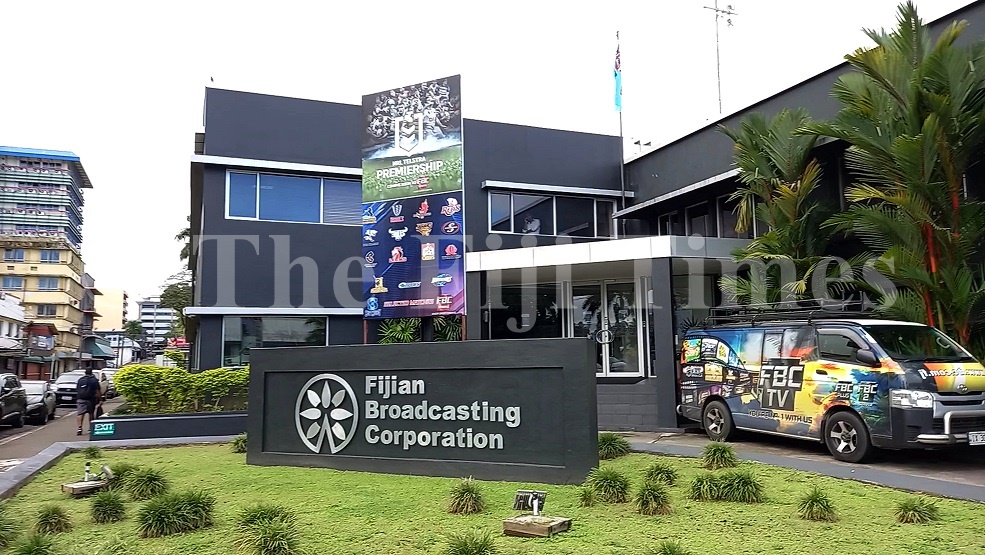This week, one of the stories that caused a media storm had to do with the salary and bonuses paid out to Fijian Broadcasting Corporation CEO, Riyaz Sayed-Khaiyum.
A shocked FBC chairman, Ajay Bhai Amrit, announced the sacking FBC chief executive officer, Mr Sayed-Khaiyum, the younger brother of former attorney-general, Aiyaz Sayed-Khaiyum, and revealed that he was being paid an extravagant monthly salary of $32,000.
This was disputed by Sayed-Khaiyum himself, who said allegations that he received exorbitant pay were “incorrect”.
He also said he was prepared to take legal action.
While we may debate over the issue until the cows come home, the problem reveals one simple truth – government ownership of the news media has glaring disadvantages.
Generally, we all know that a situation where Government owns or funds one, two or a number of media outlets tend to lead to a restriction in media freedom, stifling of freedom of expression and the exertion of an unacceptable level of influence over the media and journalists.
While the media is regarded as the purveyors of information and the truth, a government-owned or government-run media outlet has the likely propensity to manipulate information, entrench politicians and political parties, deter voters and consumers of information from making informed choices.
Ultimately, this undermines both democracy and society.
Because private and independent media supply alternative views to the public, they enable individuals like you and me to choose the best from among political choices, goods, and services — with less or no fear of abuse by politicians or those in positions of authority.
Moreover, fair competition among media firms ensures that voters, consumers, and investors get unbiased and accurate information.
Government ownership of the media upsets this fair competition and causes sections of the society to get biased or one-sided information.
Private, public and competitive media are important for maintaining checks-and-balances in our system of democracy that they have come to be called “the fourth estate”.
However, Fiji’s media cannot exercise its responsibilities as the fourth estate or as an effective watchdog of the Government if so much of the media or sections of the media is controlled or easily influenced by the Government.
In the last 16 years, laws and policies were strategically changed to suit government’s agenda on media control, posing a serious threat to media independence and freedom of expression.
While the current government’s move to review draconian laws that have governed the media for many years is a step in the right direction, we do not know how future governments will use the media and whether they were respect and honour press freedom.
While we can have laws to guarantee media freedom and ensure that government-funded media are run autonomously in theory, the worry lies in its practice, when unscrupulous politicians or media executives in the future will be influenced to only print, televise and publish what the government likes and believes is the truth.
In a robust and vibrant democracy, it is important that the media, government-funded or not, are free to report and inform the public without any interference.
Although current government and political leaders are giving assurances that there will be no interference with the media’s role and operations, it would be naive to think it will not happen somewhere down the line.
There are some countries around the world where governments control the media, a few media or most of the media present in the media space.
There are places where government funds the media only but allows it to operate freely and independently.
To make sure these do not cause problems, these are matched with a level of political maturity that ensures media independence and freedom is always guaranteed and the media editorial policy and staff won’t be interfered with.
In Fiji, the Government owns the FBC and funds it in a way similar to how the Australian government finances the ABC.
There’s nothing wrong with that arrangement, really.
But there are advantages and disadvantages of such a government media set up.
When operated prudently, with adequate safeguards and oversight laws, government-owned and funded media can offer the public many benefits.
They can be established in such a way that allows for the provision of consistent, reliable and accurate news and current affairs like private-run and owned media.
Their viability, however, will depend on whether they enjoy editorial independence and would be free from government interference and
influence.
Most importantly, unlike outright authoritarian regimes, the reliability of a state-run and/ or state-funded media outlet hinges on the government of the day’s ability to promote, protect and respect a free press, independent journalism and freedom of expression.
As responsible citizens, we must be alert and ready to stand guard against any moves by politicians, political parties or people to manipulate and distort information to suit the ruling party, entrench its political agenda and stop Fijians from making informed decisions, alternative views and opinions.
Until we meet on this same page, same time next week, stay blessed, stay healthy and stay safe!


